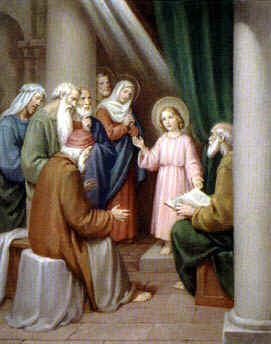A fundamental belief of Catholicism is that we are both flesh and spirit, and while the spirit takes precedence in all things, the flesh manifests in an exterior way what the soul contains. Therefore, we dress modestly to reflect the sanctity of our human person and the fact that we are temples of the Lord. We stand when the Gospel is read in reverence and we kneel during the consecration at Mass in adoration. We build beautiful churches in which much time and energy has been invested so that they may be a lasting tribute to the glory of the Lord and the majesty of the Church.
God knows what went wrong in recent years. We went from beautiful and edifying to hideous and bland in the span of only 40 years. We've discarded a rich tradition of aesthetic beauty rooted in theologico-architectural synthesis in favor of an architecture, or lack thereof, that reflects the pathetically stripped-down sense of awe that we have of our Lord. Our bland, ugly, meaningless assembly halls of churches reveal quite adequately how little so many of the faithful really care about offering tribute to our God. Why? Because it is an affront to the poor? This is nonsense. For centuries churches have been sanctuaries, places of refuge for the poor. If a congregation can have both a beautiful and edifying place of worship as well as fulfill its mission to the poor, well, I see that as a wonderfully balanced Christian life. We've thrown out the aesthetic to save a few bucks. Look what we've got now:

 St. Patrick's "Catholic" Church, Gainesville
St. Patrick's "Catholic" Church, GainesvilleDoes this mean that we must build Notre Dames or St. John Laterans in every town and city across the world? Absolutely not. Even small and unimposing churches can be beautiful. What we see now is not beautiful. It shows little or no effort on the part of parishes or priests to disply some sort of care in the making of the house of the Lord.
We've gone from this:
 ...to this:
...to this:








